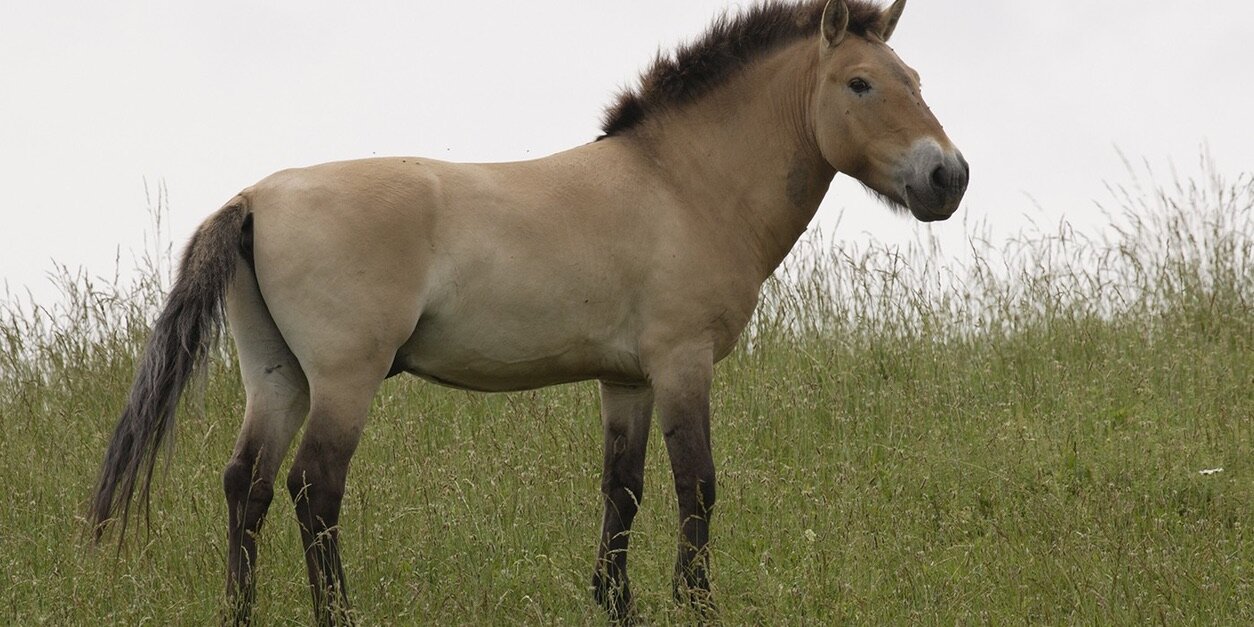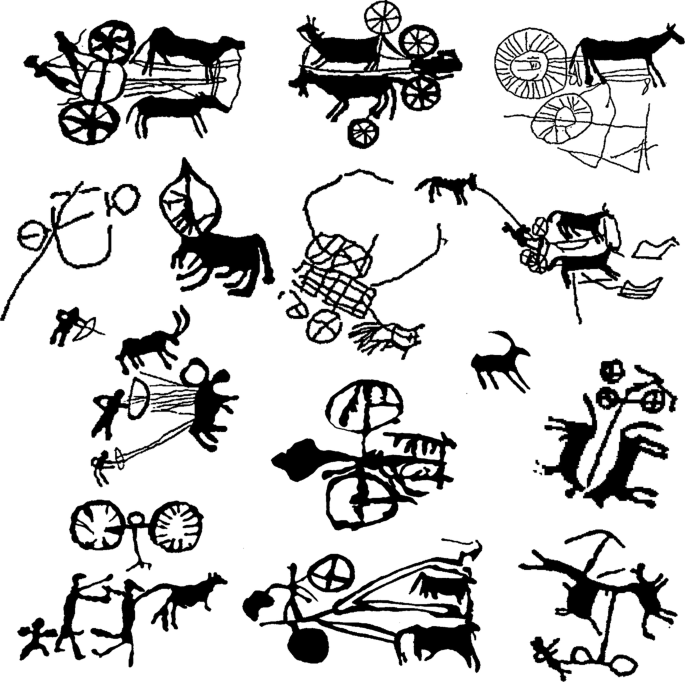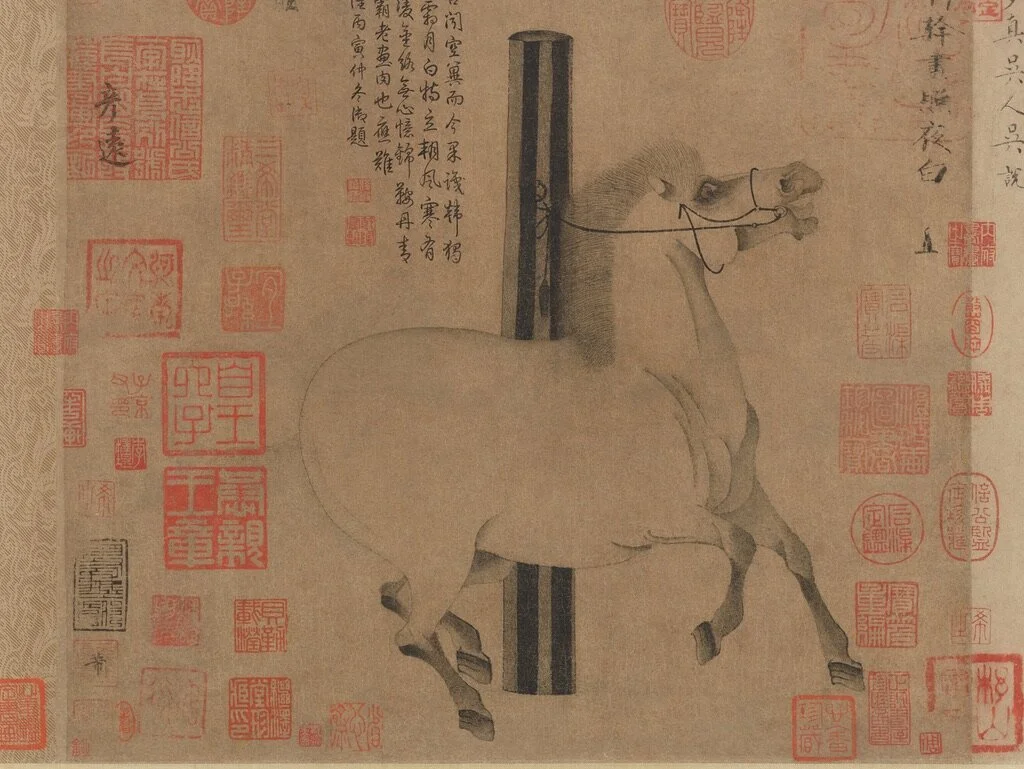From Predator to Prey
Rupestrian Art
Horses are the most frequent animal to be depicted in the earliest art. Humans probably hunted them to extinction in Europe.
Ancient Horses
No one knows what ancient, wild horses were like. Adapting to the harsh environment of Mongolia makes modern wild horses look like this.
Chariots
Steppe peoples used these to hunt speedy antelopes. They didn’t know how to ride horseback.
Petroglyphs, Kazakhstan, 2nd Millennium BC
Heroes for Horses
An Archer
Hermitage Museum, collection of Peter the Great, 4th or 5th century BCE, South Russia, Gold
Dying Warrior
Hermitage Museum, 4th or 5th century BCE, Siberia, Gold
The Lancer
Hermitage Museum, 4th or 5th century BCE, Southern Russia, Gold
The First Horse Powered Empires
Tribute Horses
British Museum, Medes bringing tribute horses to the Persian Court, Persepolis, 4th century BCE
Royal Horse
British Museum, Sakyamuni leaves his horse behind, Amaravati, 2nd century AD
Cavalry Trooper
Tomb of the First Emperor, Xi’An, China, Terra Cotta, 1st Century BCE
Tracking The Blood Sweating Horses
Han Horse
The Han Wudi Emperor sent an expedition to Ferghana to acquire blood sweating horses. This bronze from the 2nd Century AD represents the ideal sought by the Han. Lanzhou Museum, Gansu Province
Kushan Horse
Refugees from western China, the Kushans dealt in horses across the Hindu Kush Mountains, selling to both Chinese and India rulers. Amaravati, 2nd Century AD. British Museum
XXX
xxx
Teaching Horses to Dance
Taizong
The six war horses that carried the Taizong Emperor of the Tang to victory over the Turks are buried in his mausoleum, and depicted in basrelief here. University of Pennsylvannia Museum.
Lady Polo Player
Aristocratic ladies of the Tang court betrayed their steppe heritage by participating in the rough and tumble of the polo game. “San-Cai” Porcelain, Victoria and Albert Museum
Imperial Favourite
Court painter Han Gan portrayed Night Shining White, a favourite horse of the Tang Xuanzong Emperor. Metropolitan Museum of Art, New York













